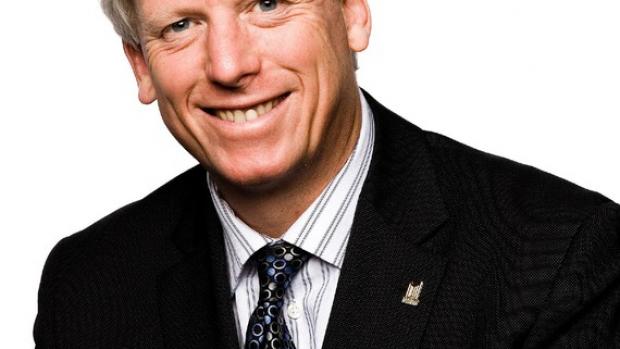Canada’s World Wildlife Fund Gets an Accomplished, Visionary New Leader: NYU-Poly's David Miller

In 2011, when David Miller, former mayor of Toronto, was named a Future of Cities Global Fellow by the Polytechnic Institute of New York University (NYU-Poly), it was an exciting addition to an already impressive list of positions and accomplishments.
Miller’s CV will get even longer in September 2013, when he assumes leadership of Canada’s World Wildlife Fund (WWF), the country’s largest international conservation organization. As president and CEO, Miller will be responsible for overseeing WWF-Canada's staff of more than100 employees and inspiring strong relations with more than 150,000 WWF supporters and volunteers. “David comes to WWF with a strong track record on conservation issues,” Roger Dickhout, Chairman of the Board of Directors of WWF-Canada, said. “He is a terrific addition to the WWF team who will help us achieve our ambitious conservation objectives.”
Among those ambitious objectives are conserving biological diversity, ensuring that the use of renewable natural resources is sustainable, and promoting the reduction of pollution and wasteful consumption. Thanks to WWF-Canada’s efforts, 38 million hectares of Canadian wilderness have been protected through the Endangered Spaces Campaign; critical marine-protection areas on all three of the country’s coasts have been created; and the largest freshwater reserve in the world has been established in western Lake Superior.
Miller, who avidly hikes and canoes in his spare time, is enthusiastic about his involvement in the organization. “Canada is an incredible country. Its residents are naturally conservation minded,” he wrote on a WWF blog. “Canadians understand the value of nature and the meaning of our environmental challenges. They are looking for leadership in meeting these challenges, and I believe that WWF is one of the very few organizations in Canada that is, can, and will provide it. That’s why I’m here.”
Miller served for two terms as mayor of Toronto, Canada's largest and most diverse city. Over the course of his tenure (2003-2010), he led a widely copied program of greenhouse-gas reduction and championed greater investment in cycling infrastructure, public transit, and protection of the waterfront, among other initiatives. He is widely credited with helping make Toronto a world-class model of livability and opportunity.
As chair of the influential C-40 Cities Climate Leadership Group from 2008 to 2010, he was instrumental in demonstrating the practical changes cities needed to make in order to fight climate change and create green jobs, and he added published author to his list with Witness to a City: David Miller's Toronto, which was released in 2010. Currently affiliated with the law firm Aird & Berlis, he specializes in international business and issues of sustainability.
Miller sees his new role as a superb match for him. “How do we ensure that our planet is not harmed by human-caused climate change? How do we protect our natural environment and species at risk? And how do we do this in a way that creates jobs and sustains our economy? These are questions that I’ve confronted throughout my career,” he wrote. “In many ways my [past] work in these roles—to build jobs and a strong thriving economy that coexists with our natural environment—mirrored the mission of WWF: a future where people live in harmony with nature.”




